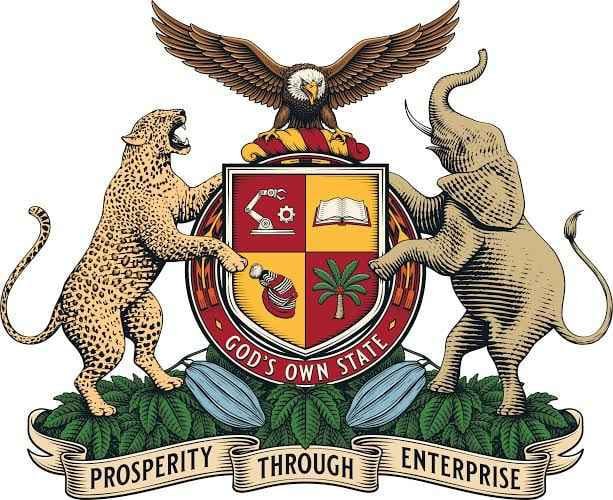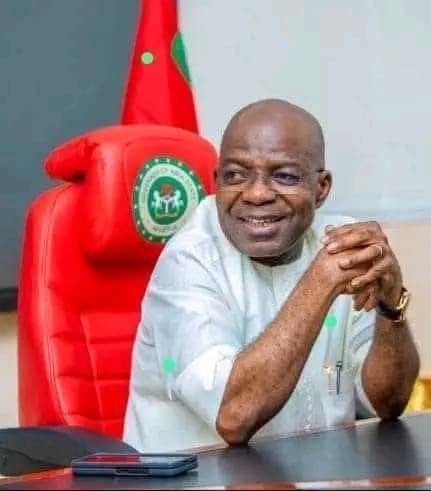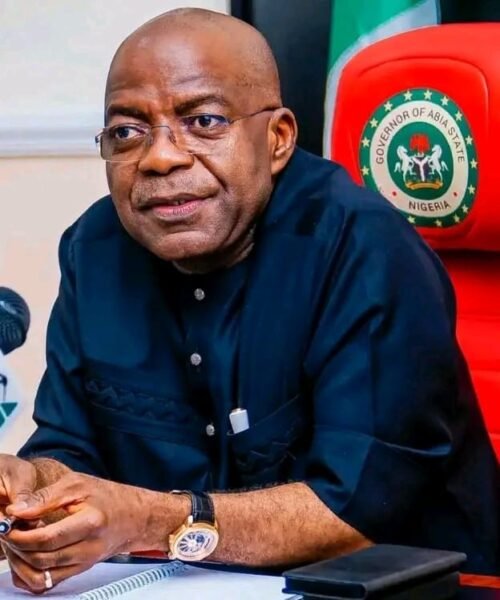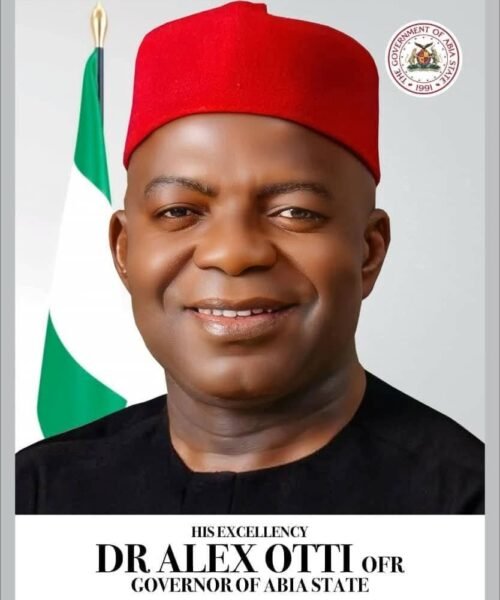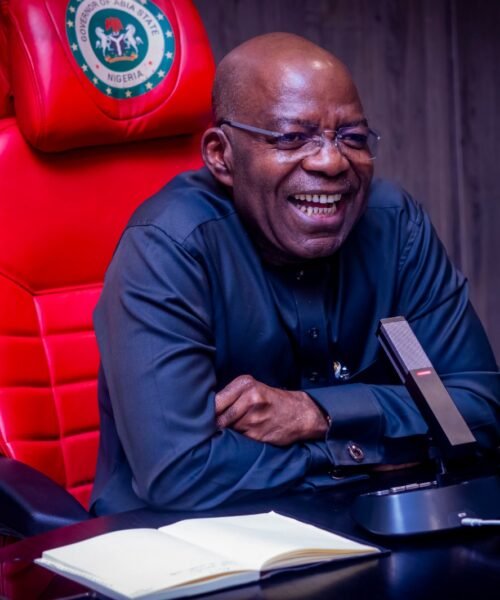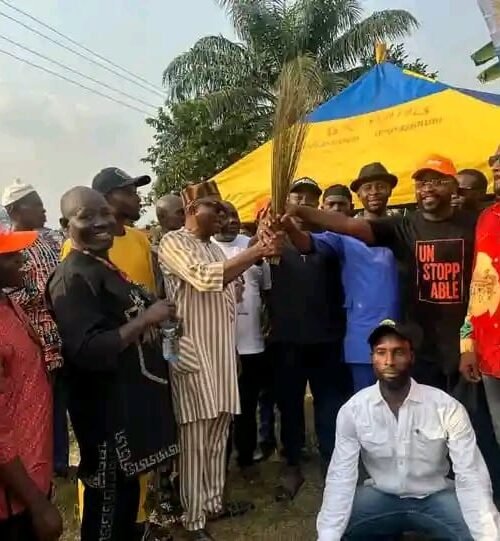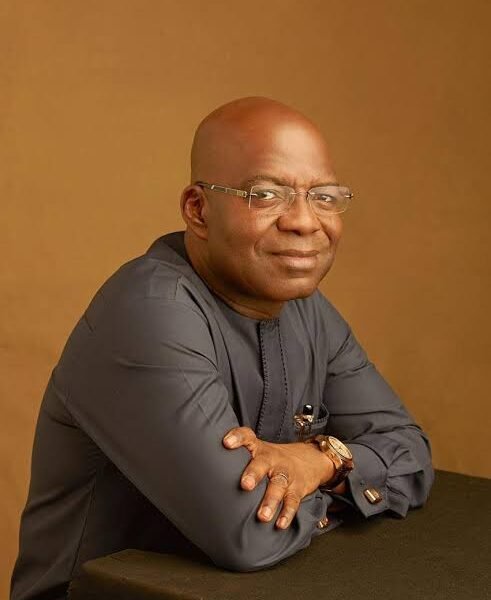Gov Otti vs the Chokepoints: How Abia Is Breaking Free from Nigeria’s Economic Traps
When American scholar Edward Fishman released his 2025 bestseller Chokepoints: American Power in the Age of Economic Warfare, he wasn’t writing about Nigeria.
But his ideas — that real power lies in who controls economic gateways like banking, trade routes, and digital systems — speak loudly to what’s happening right now in Abia State under Governor Alex Otti.
From the dust of bad debts and broken promises, Otti is building a new Abia — one that refuses to be strangled by national and global chokepoints. In his words, “Abia must control its own story.”
And that story is unfolding fast.
A State Learning to Control Its Own Flow
In Fishman’s theory, those who command the “chokepoints” of an economy can decide who thrives and who starves. For decades, Abia’s economy was at the mercy of others — federal allocations, middlemen, and power brokers who owned the pipelines of money.
Otti’s approach has been simple: build Abia’s own pipelines.
He began by digitizing tax and fee payments, sealing leakages that drained billions every year.
Within just six months of 2024, Abia generated ₦15.5 billion internally — a record performance for the state (Pulse Nigeria, 2024).
Now, when revenue flows, it flows into Abia’s coffers — not private pockets.
The reconstruction of the Ekeoha Shopping Centre in Aba with modern ICT systems and security infrastructure (Vanguard, 2025) is another symbolic chokepoint reclaimed.
By connecting local traders to broadband and cashless systems, the government is shifting commerce from dependence on external collectors toward home-grown economic control.
The Debt Debate and the Danger of Overreach
But Fishman also warns: chokepoints can turn into traps if mishandled.
Otti’s ₦567 billion 2024 budget — with 71 percent financed by borrowing (Daily Post, 2023) — raises eyebrows.
Supporters call it developmental debt; critics fear fiscal suffocation if returns lag behind repayment schedules.
The governor insists every borrowed naira must “build something visible.” Roads, industrial parks, hospitals, and smart schools are already appearing across Aba, Umuahia, and Ohafia.
Yet, economists caution that without matching revenue growth, debt could evolve into Abia’s own internal chokepoint — one that limits future spending freedom.
People Before Politics

Where Otti stands out is his focus on human liquidity. Clearing ₦40 billion in salary and pension arrears (BusinessDay, 2024) has restored dignity to thousands of families.
Workers now receive pay before the 28th of every month — a fiscal habit that revives markets in Ariaria, fuels Umuahia’s small shops, and sends confidence rippling through the local economy.
To Fishman, money is more than cash — it’s trust in motion.
And trust, once restored, becomes a currency of its own.
Building Abia’s Micro-Chokepoints
Abia cannot control global oil prices or the naira’s exchange rate. But Otti’s team is quietly building micro-chokepoints: local systems of control that secure the state from shocks.
Revenue digitization reduces dependence on cash intermediaries.
Procurement reforms ensure “Made in Abia” takes precedence in state contracts (The Cable, 2024).
Economic Management Team established in 2025 provides expert oversight on public spending (Abia State Gov, 2025).
Each policy, modest in isolation, becomes a knot of economic sovereignty — tightening Abia’s grip on its own destiny.
Abia at a Crossroads
The lesson from Chokepoints is stark: those who fail to control their own systems will always be controlled by others.
Governor Otti’s challenge is to strengthen Abia’s internal architecture fast enough to resist external shocks — inflation, exchange crises, federal bottlenecks.
If he succeeds, Abia may become Nigeria’s model of subnational economic freedom — a state that learned to breathe even when the national economy holds its breath.
If he fails, the dream could be choked at the very gates it built.
But for now, as bulldozers rumble through Aba’s streets and digital dashboards light up in Umuahia’s secretariat, one truth is clear:
Abia is no longer waiting for rescue — it’s building its own escape route.
AProf Chukwuemeka Ifegwu Eke

